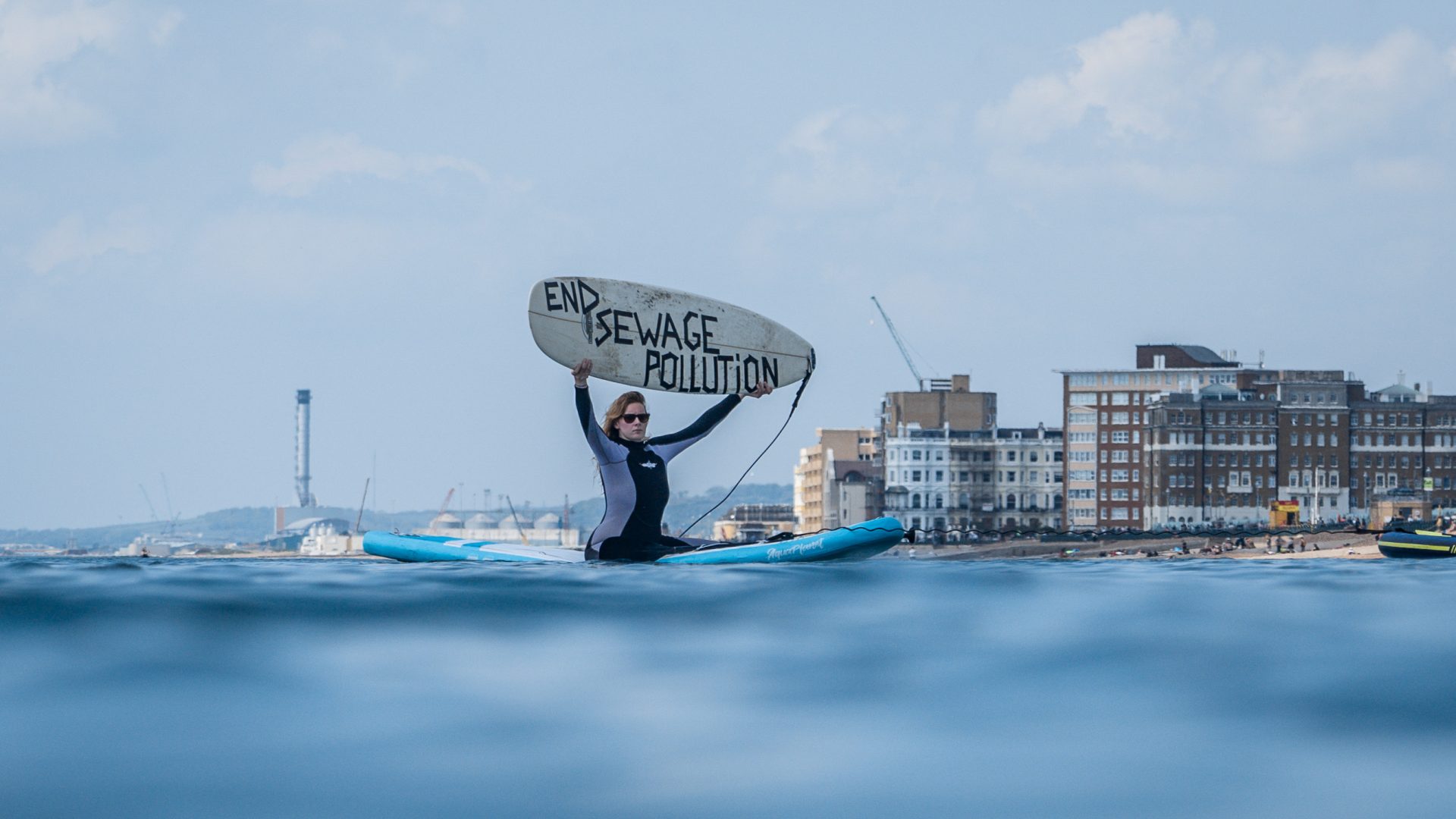
Our letter to the Government
Recent publication of confusing sewage data maps is threatening public health. We've sent a letter to the Ministers for Water, Sport, and Public Health.
Water companies across the UK should be making their pollution data easily accessible and understandable to protect public health, but they aren’t.
Whilst we welcome the increased amount of data being provided by the Water Industry in their regional maps a scan of each map will outline how inconsistently this data is presented between water companies. Meaning water users are being left confused from one beach to another whether they can use the water safely.
Surfers Against Sewage put water-users first, but this data dump from water companies shows that this isn’t something the water companies prioritise. Whilst they have increased transparency, they aren’t providing a reliable service for water-users.
So alongside our friends at Paddle UK, Swim England, British Triathlon, National Federation of Women’s Institutes, Angling Trust, British Rowing, Royal Yachting Association and River Action we have written too government ministers to demand they step in and tackle this emerging public health threat.
Here’s our letter:
Dear Minister,
The primary purpose of the provision of real-time sewage data should be to protect public health. The data should inform water users when and where it’s safe to use the water. For this to happen the data provided across the UK must be easily accessible, consistent and understandable.
The recent publication of regional sewage maps by water companies, whilst a welcome step forward for transparency, is creating confusion amongst all kinds of water users due to a lack of nationally agreed standards.
Each water company map presents sewage discharge information in a different way with a broad mix of icons, descriptions and parameters. There is also no agreed standard for whether the maps should provide a sewage alert to notify waters users if a discharge is likely to affect popular recreational spots. Where water companies do provide these alerts, they are found in separate maps and there is no agreed standard for how and why they are triggered and how long an alert should remain in place.
Over 7.5 million adults participated in paddle sports like canoeing and paddle boarding in 2022, and wild swimming and surfing have also seen an explosion in interest. But this inconsistent information and sporadic landscape is causing confusion for all water users, from sailors to anglers, who are unsure whether bathing waters are being impacted by pollution and whether they can use the water safely. This is being played out around the UK already with communities unclear about the level of risk they are being exposed to when using the water.
A way forward for prioritising public health
The water industry is due to publish an ‘‘independently-overseen National Environment Data Hub’ by the end of May 2024 to provide the public with up-to-date information on the operation of all sewage overflows in England. This provides a very welcome opportunity for the industry to protect public health by providing water users with the simple information they need to use the water safely.
To ensure this real time system is effective in protecting public health we believe that the regulator must step in to oversee the creation of and inclusion in this new system;
- A formal definition of a sewage pollution alert which sets out when and why an alert should be triggered and how long an alert should be in place. This should be adopted nationally by water companies, regulators, and stakeholders. This would eliminate confusion and enhance public trust. The definition should be informed by the most up to date scientific evidence on the risks posed by pollution to human health, independently verified, and adopt the precautionary approach.
- A standardised API data feed containing real time discharge alerts which should be overseen by the regulator and made publicly available for the use of regional wastewater company sewage maps as well as third parties.
- Standardised language and visuals for displaying discharge data to the public to ensure the public can understand where and when sewage has been discharged wherever they are in the UK.
- The continued provision of sewage overflow information in its raw form to allow third parties to allow sewage alerts to be issued to inform water users of risks posed by recent discharges at their local beach or other Bathing Water.
Despite our ongoing engagement with the water industry and our offer to help them create a standardised approach to protect the health of water users, we are deeply concerned that without the intervention of the regulator we expect this data hub to miss a clear opportunity to further protect public health from the impact of sewage pollution
We are available to discuss this further and look forward to you taking decisive action to avert damaging impacts on human health.
Yours sincerely
Giles Bristow, CEO Surfers Against Sewage
Ashley Metcalfe, CEO Paddle UK
Andy Salmon, CEO Swim England
Ruth Daniels, CEO British Triathlon
Melissa Green, CEO National Federation of Women’s Institutes
Jamie Cook, CEO Angling Trust
Alastair Marks, CEO British Rowing
Sara Sutcliffe, CEO Royal Yachting Association
James Wallace, CEO River Action
Cc.
The Rt Hon Stuart Andrew MP, Parliamentary Under Secretary of State for Sport,
The Rt Hon Andrea Leadsom MP, Parliamentary Under Secretary of State for Public Health
Philip Duffy, CEO Environment Agency
David Black, CEO Ofwat
Chris Witty, Chief Medical Officer
Susan Davy, CEO South West Water
Lawrence Gosden, CEO Southern Water
Nicola Shaw, CEO Yorkshire Water
Colin Skellett, CEO Wessex Water
Peter Simpson, CEO Anglian Water
Louise Beardmore, CEO United Utilities
Heidi Mottram, CEO Northumbrian Water
Chris Weston, CEO Thames Water
Liv Garfield, CEO Severn Trent
